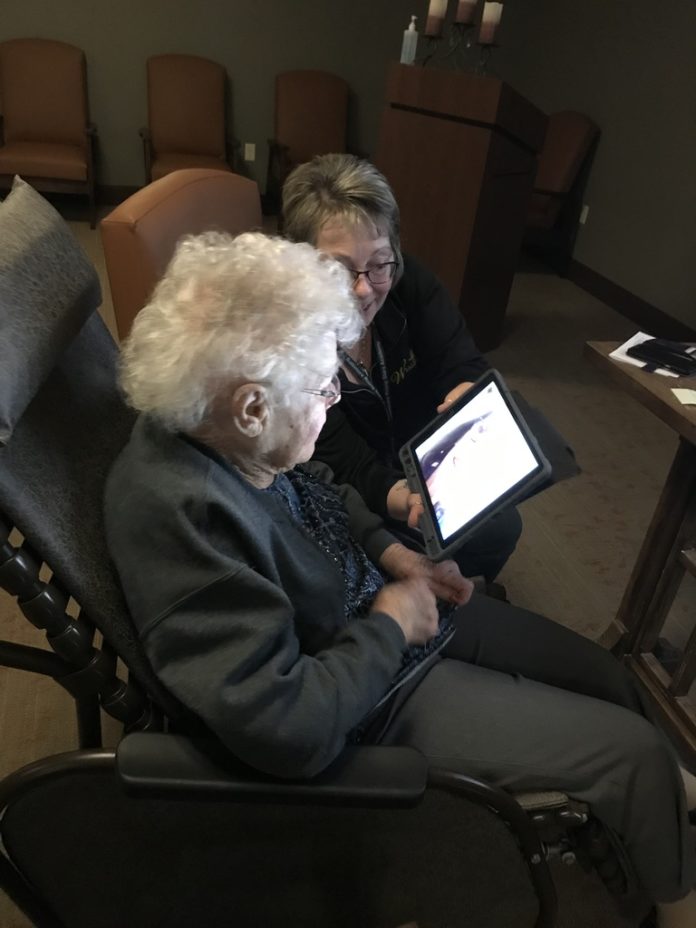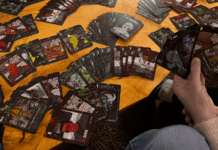Assisted living and memory care facilities and nursing homes, from the outside bring to mind uncertainty and fear during these COVID-19 times. A larger concentration of an older population residing in one place creates concern for the spread of infection. What is not being reported is how the staff who chose this occupation are devoting their lives to making their residents as safe, comfortable and happy as possible.
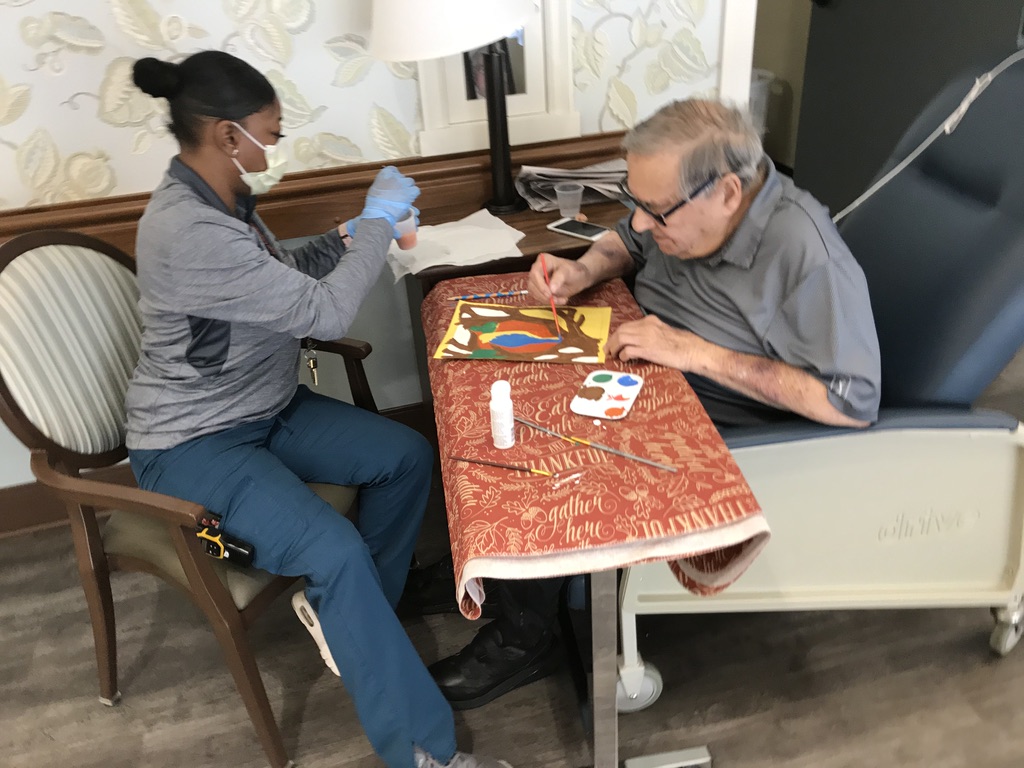
Many are doing all they can to take this current circumstance and adjust to a new routine. Annette Gunnerson, activity director and certified dementia practitioner at The Wealshire of Medina oversees an activities staff of 14 people. The team creates and implements activities for their residents that are interesting and interactive while adhering to safety standards. “Prior to the arrival of this virus many of our residents looked forward to participating weekly with a baking group or our daily ice cream social time, but we had to end both of those, no more hand-to-mouth type activities,” Gunnerson states. Those activities were quickly replaced with interesting and creative alternatives.
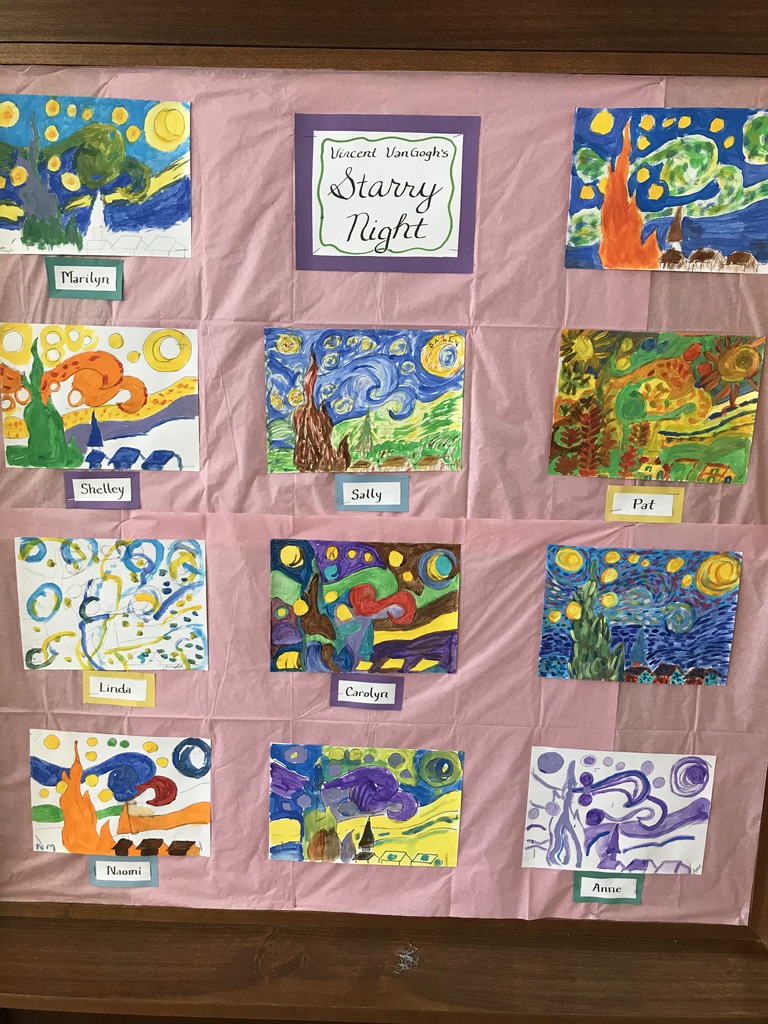
“Every day and every week brought a new challenge with the coronavirus. We needed to sanitize after every touch rather than after every activity. We did away with the baking, then the ice cream. They miss some of the outside entertainment we were regularly bringing in, but fortunately we still have a full time music therapist who now visits every household every day. He organizes large group sing alongs each Monday, and staff help with that. He provides background music during their meals. It’s touching when you see someone crying because his music has reached that person.” Music is a great equalizer, it brings balance and meaning during times of change.
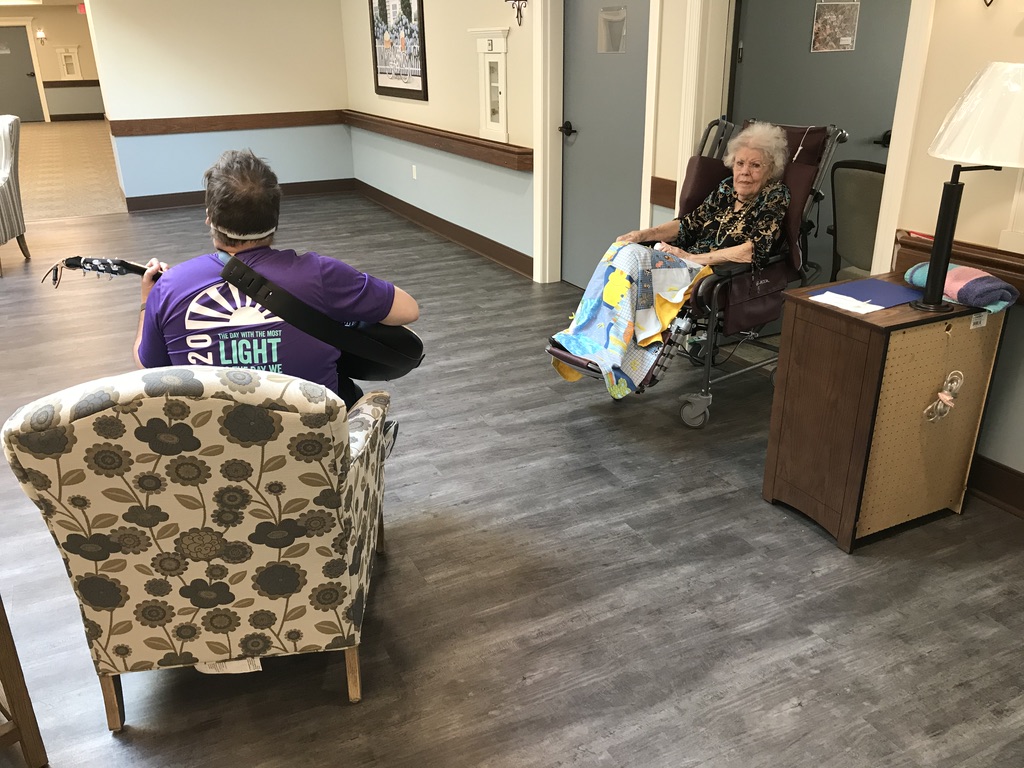
“It’s hard to keep memory care residents in their rooms 24 hours a day, they don’t understand,” Gunnerson explained. “Instead we keep them six feet apart in large areas.” Wealshire is non-traditional in it’s set up, with large open spaces and extra wide hallways. “We don’t allow them to be in close proximity to each other. At first they asked, ‘what’s social distancing?’ We told them because of this virus, we need to keep our distance. At first masks were a little scary, but we always explain why we are doing what we do. Now they know we wear the masks to protect them.”
Although the residents at Wealshire of Medina don’t play bingo any longer due to all the pieces involved, other activities have been added. “There are a lot of brain games and science projects they can watch, and we ask them questions,” Gunnerson paused. “It isn’t as much hands on for them, but more hands on for us. We focus on asking each of them questions using who, what, where, when, how. For example, we’ll place (the candy) Skittles in water, the coating comes off and then the color melts into a spiral shape. Another project is putting a bar of Irish Spring soap in the microwave and it turns into foam. We are asking them questions, brain training. We also do brain training with meditation, and weekly we flag dance.” What is flag dancing? Gunnerson laughs. “We adhere lots of colorful ribbons onto a short dowel and it looks like a flag, they’re only about a foot long. When they’re distancing they have a lot of room to tap their foot or move around. They have exercises like Tai Chi, some standing and some sitting. We’re always looking for a response, to see what our activities are bringing out of them.
Long term care and senior living facilities have been preparing for COVID-19 similarly to medical healthcare providers but their battle is to keep the invisible virus out. Lynda Wachholz at Cornerstone Assisted Living and Memory Care said, “It’s impacted every single nursing home, assisted living and memory care. When Governor Walz ordered restaurants to close on March 17, we also closed our dining room to protect our residents. Our dining staff has since delivered meals three times a day to everyone. It’s created additional work for the same amount of staff – but it’s what we want and need to do.”
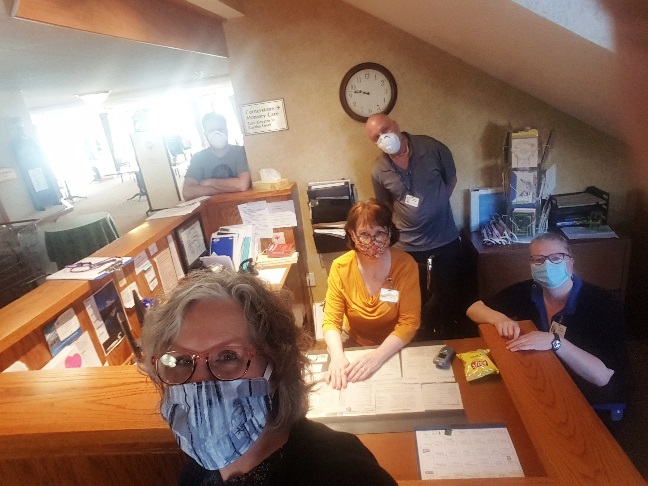
With the extra precautions comes extra attentiveness. “Many of our residents are actually getting more attention because our caregivers and champlain are visiting their rooms on a regular schedule, especially for those who were more introverted and didn’t opt to engage in many activities,” Wachholz explained. “The one-on-one time has been beneficial for many.”
This COVID-19 battle our nursing homes, assisted living, long term care and memory care facilities are fighting against too often goes unseen. Wachholz explains, “We are protecting our most vulnerable, not only from the outside world’s asymptomatic spread, we are fighting against our residents’ boredom and confusion caused by isolation and dementia. We worry and watch so they don’t fall into a depression or experience feelings of loneliness.” She explained how the entire staff empathizes with families who are feeling disconnected and fear for their loved ones. More than ever these care professionals are taking seriously their role as caregivers and as extended family for their seniors. “We have a schedule where we hold iPads and phones to connect with and reassure family members their loved one in residence is okay, even if that person is unable to communicate this themselves.”
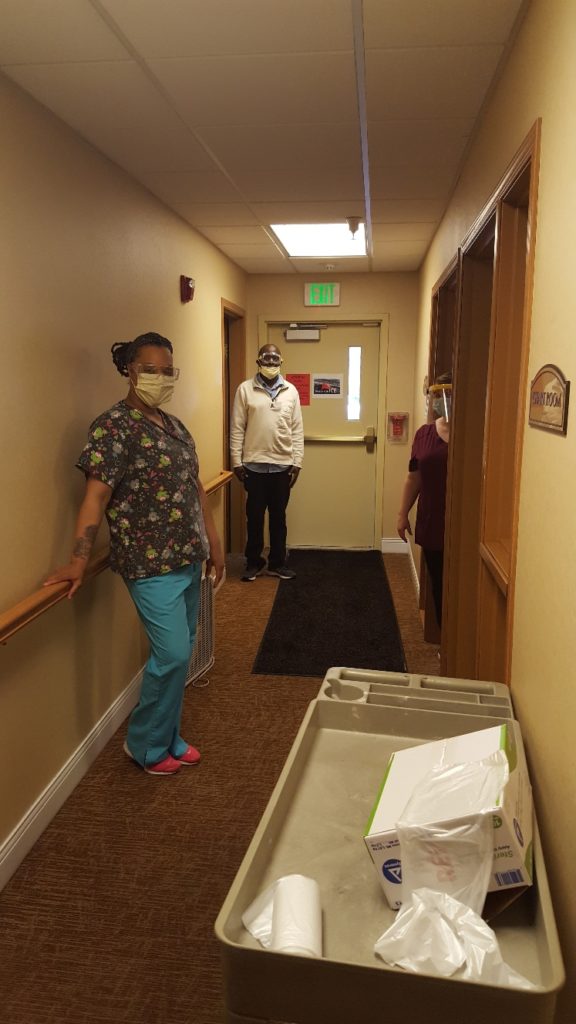
While keeping a close watch on everyone can be challenging, those who have a calling to enter this field also understand the importance of self-care to better care for their residents. “We gather our staff together to dance, we need to keep joy in our lives to continue to bring joy to others,” Wachholz laughs as she recalls their latest joy inducing activity.



